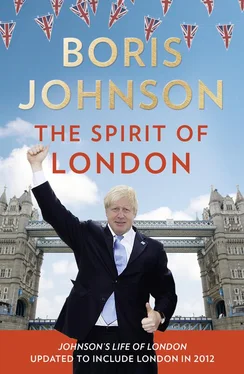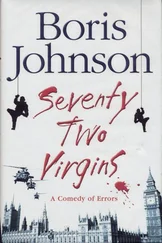With that psychological conditioning, and in that environment, most members of the public were more than ready to enjoy themselves – and then the athletes started winning: the British athletes of whom some of us, in our ignorant pessimism, had begun to despair.
The first golds were taken by the women rowers, Heather Stanning and Helen Glover; then there was Bradley Wiggins; then a farm boy from Dorset defeated the world at shooting – and then it seemed there was nothing Team GB couldn’t win. We weren’t just winning in the kit-intensive sports like cycling, sailing, riding, rowing – all the sports that involve sitting down, as the old joke puts it. British athletes were winning at running and jumping as well – activities which don’t require that much expensive equipment, and where British athletes were taking on the best of the rest of the seven billion people in the world, and doing even better.
There can be no doubt that it was this patriotic feeling – massive group engagement with some individual’s struggle and achievement – that drove the crowd nuts with joy. At the Stadium, the Velodrome, the Aquatics Centre, the vocal support was like a blast wave or sonic shock that seemed to send British athletes faster than the rest. At Eton Dorney the noise from the rowing crowd was like the last trump.
The spectators became deeply engaged in these contests, and often it wasn’t just the athletes who were allowed to shed a tear – win or lose – at the end of their performance. Sometimes even BBC presenters permitted their lower lip to wobble, and sometimes large sections of the audience were in absolute floods. Who says the British are not an emotional people? It became a kind of blubberama.
Soon it became noticeable that the emotional commitment was being extended not just to British athletes, but to all participants. Wild applause greeted any act of sportsmanship, any recovery from a setback. We cheered athletes from France, from Australia, and even Mitt Romney was redeemed (after some incautious remarks about London’s state of readiness) when it was discovered that his wife part-owned a horse in the dressage. A sort of euphoria took hold of the population – as though we had been crop-dusted with endorphins, or Thames Water had added serotonin to the supply. It spread out from the venues via the millions of people watching on TV. In towns and villages across the country pillar boxes were being painted gold in honour of the victorious athletes, and after four years of economic gloom, and exactly a year after riots had swept London and other British cities, a mysterious sense of well-being seemed to descend upon the nation – or at least on the large numbers who got the bug. Sociologists or anthropologists will be able to tell you what was going on, but it struck me as a benign mental contagion, a bit like the sentimental affliction that hit us after the death of Diana, Princess of Wales, except that this time it was positive.
People would start up conversations on the Tube – and no one assumed they were mad. One woman turned to a City Hall official, without knowing who he was, and said: ‘I want to know who I can write to, to thank for it all.’ It became obvious, in short, that we had a monster hit on our hands, far bigger than any of us had expected.
The things that were supposed to go wrong had not gone wrong. The transport systems all worked fine. More people hired Barclays bikes than ever before. The cable car took more than a million on high, to see the sights of East London, including Arnold Schwarzenegger, who pronounced the view of Canning Town ‘very nice’. The Tube carried record numbers of people – about 4.5 million per day – with more or less metronomic efficiency. The Jubilee Line worked so well, in fact, that members of the ‘Olympic Family’ abandoned their claims to the so-called Zil Lanes and took public transport with the rest of us.
Athletes flashed their medals at fellow passengers. The Rwandan team were seen at a bus stop. When David Cameron took the Tube he was thanked (very properly) by a member of the public for his role in helping to make it go faster. The IOC president Jacques Rogge took the Docklands Light Railway and pronounced it excellent. London transport got every single athlete, politician, bureaucrat and journalist to his or her destination on time. More or less.
Having given us all such a fright, the G4S staff started to turn up in droves. The security operation was masterminded by thousands of military personnel and they all – including the police – did such an effective job that I didn’t hear of a single serious delay in getting into the venues.
As for the weather, it performed a complete somersault, and for more than two weeks it remained good to fair: maybe a bit overcast at times, but perfect for a garden fete. It turned out that the tourists had not entirely fled London, and those that came spent more than in previous years. Crime fell by a further five per cent.
And the things that were meant to go right went spectacularly right. It helped that the Team GB athletes were so nice and well-balanced. Many commentators drew the contrast between the modesty and work ethic of these relative unknowns, and the behaviour of professional footballers.
It also helped that the quality of the sport – not just the British contribution – was superb. Good old Usain Bolt. He not only came to London and ran 100m in the second fastest time in history. He ran faster than he had in Beijing. Then he won the 200m as well, becoming – arguably – the greatest athlete in history. Then he and his Jamaican colleagues went on to obliterate the 4 × 100m world record. He fully deserved his night of relaxation, or whatever it was, with those Swedish volleyball players. London set 27 world records across the board, from weightlifting to cycling to the women’s 4 × 100m sprint to David Rudisha’s astounding 1 minute 40 in the 800m; and that was important. This Olympics wasn’t just a big moment for Britain. It was a big event for the world, a moment when humanity collectively pushed out its boundaries.
But elite sport is for the very few. Only a tiny fraction of the top one per cent will have the talent and the application to become Olympic athletes, let alone medallists. The ethic of the Games is stark, Homeric: an all-or-nothing competition that ends in the glory of success or the dejection of defeat. And so for many people the true spirit of the London Games was shown not just by the athletes, but by the volunteers – the 70,000 Locog Gamesmakers, the 8,000 Team London Ambassadors.
They were there to show that everyone could participate, that 2012 belonged to us all. They democratised the Games. They had something of the Butlin’s Redcoats in their chirpiness, and they steadily acquired their own heroic status in the minds of the public, and for many of them – as they repeatedly told me – it was the best and most exciting thing they had done in their lives (and the same is true of many of the rest of us). They may have temporarily mothballed the pink and magenta livery, but many of them will be hoping to do something like it again.
By the end of the Paralympics, it was as if nothing could go wrong; or rather, people no longer seemed to mind it, whatever went wrong. We took the Javelin home after the Paralympic Opening Ceremony. This turned out to be a mistake, since the service was reduced, and we waited for about two and a half hours in a crowd of thousands. Under normal circumstances I reckon I would have been lynched. But no: the mood was so outstandingly charitable that I found myself being thanked.
One day towards the end of the Paralympics I was walking through the Park, and thinking that it was even more packed than it had been during the Olympics. The sun shone on happy crowds as they thronged over the bridges. Families played in flower-filled meadows. It was like some ancient vision of Elysium, and I thought, look at this lot.
Читать дальше












